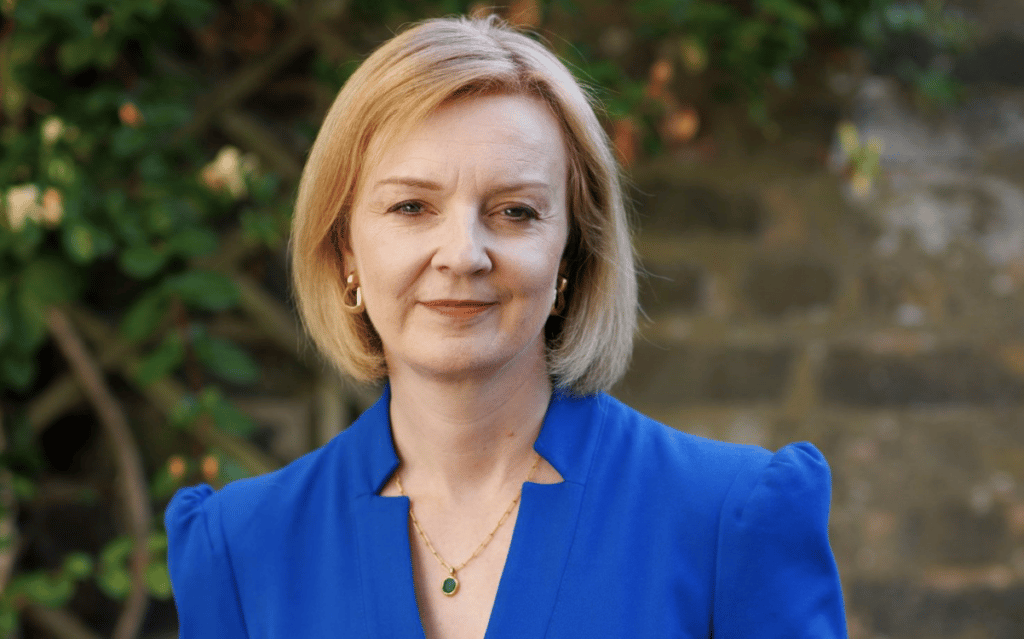Britain’s next prime minister, Liz Truss, is ushered into power with a barrage of economic problems that presently ravage Britain. The 47-year-old Conservative politician who has served as foreign secretary beat Rishi Sunak in an election she convincingly won fair and square to become the next prime minister.
With new roles come new problems to solve, which is no different with Truss. She faces a multi-faceted economic problem ranging from recession to inflation amid the demise of Her Majesty, Queen Elizabeth II. British households fear they’ll be unable to make it through winter if the government fails to assist. Worse still, workers are expressing their displeasure through industrial strike actions.
In what appears to be the consequences of Brexit and the Russia-Ukraine war, Britain grapples with stormy economic weather. There is an increase in energy bills, food prices, recession, and 40-year high inflation.
Truss has a reputation for advocating for free market economics, small government, and low taxation. As Prime Minister, she will likely continue to advocate for these policies. This means there’s every reason to show that the British economy is in for a turnaround.

The Crisis Explained
As of July this year, Britain had 10.1% inflation, the highest annual inflation rate among the G7, a group of seven nations with advanced economies. Dependence on imported gas has laid the foundation for the UK’s economic problem.
No sooner had the G7 countries, to which Britain belongs, agreed to put a price cap on Russian oil than Russia shut down gas flows to Europe through the Nordstream 1. The Nord Stream 1 pipeline, with a capacity of 55 billion cubic meters (bcm) of gas per year, is the largest gas pipeline from Russia to Europe. Notably, countries that signed this agreement cannot buy Russian oil beyond the cap level; a move devised to reduce Russia’s financial power in the ongoing Russo-Ukraine war.
As gas supply is imperative to all aspects of business, its shortage spells doom for the country with a transiting government. Not only does the UK face energy rationing, but it also faces potential blackouts. In fact, in the UK, gas is used to generate roughly 40% of electricity, and on freezing days when demand is higher, even more. Worse still, Russia has warned that without the sanctions lifted, supply will cease to resume in full. The situation leaves the UK with no option but to ration energy consumption for households and businesses.
If the skyrocketing energy cost doesn’t decline, inflation is predicted to reach 13% this year and could continue similarly to the end of 2023. Goldman Sachs, a UK investment banking company, predicts inflation could top 22%.
Rising inflation reduces the purchasing value of money, which weakens a currency’s purchasing power. Ultimately, the euro has dropped to a 20-year low, falling below the USD. The high inflation rates plunge the UK into what is known as stagflation, a condition in which economic growth is slow, but inflation remains high. This means that the cost of living increases, and purchasing power decreases.
What Next For Liz Truss?
Liz Truss plans a change in the status quo. One of these is her rejection of government handouts. Instead, she proposed tax cuts. Although her taxation policy has been viewed as one that could worsen inflation, however, she remains insistent on her policy. A proposal to reduce green levies on energy bills, which are intended to fund renewable energy projects, is one of Truss’ tax cut measures, which would cost the government more than £30 billion (€34.68 billion, $34.53 billion).
While Truss believes her taxation policy will effectively stabilise the economy, Rishi Sunak, a former chancellor and opponent during the election, believes too much borrowing will render the plans “irresponsible and complacent.”
Still, Truss appears ready to disrupt what she believes to be orthodoxies in the UK’s major financial institutions. Her decisions could stir up sudden changes that could either make or mar. For instance, she dislikes onshore wind and cites solar farms on fields as one of modern Britain’s saddest sights. On the other hand, she has endorsed a significant increase in nuclear power and would favour fracking for shale gas.
The UK relies on gas more than any other European nation, and the shortage of this has caused massive damage to the economy. While Liz Truss embarks on additional efforts to lower gas prices and increase supply, her decisions have been subject to criticism. One of her decisions is to increase more oil drilling in the North Sea, and the UK government is already working on new North Sea oil and gas exploration licences. However, environmentalists have criticised this decision as such an action could worsen the climate issues. Additionally, the Greenpeace chief UK scientist, Dr Doug Parr, argued that an increase in the drilling of the North Sea would have minimal effect on reducing energy bills.
With Truss in the saddle, her most important priority is the reduction of energy bills so households and businesses can thrive. Consequently, when businesses thrive, the recession will get reduced. However, while she’s embarked on new approaches to stabilising the UK economy, she appears to be aware of the risks associated with whatever decision she makes now. In addition, as a supporter of Brexit, Truss’ foreign policy could be the same as Boris’s.
Notably, her foreign policy has been described as hawkish regarding her views on Russia, China, and of course, the European Union. In fact, the UK’s relationship with the US amid the offensive of a mutual foe, Russia, is a critical thing in Truss’ administration as there appears to be a clash of interests on the Northern Ireland protocol, the UK’s agreement with the EU that keeps Northern Ireland in the EU’s single market. While it’s no secret that the US helped broker this agreement, any alterations to the agreement will be considered a breach of international law which could result in tense bilateral relations.
